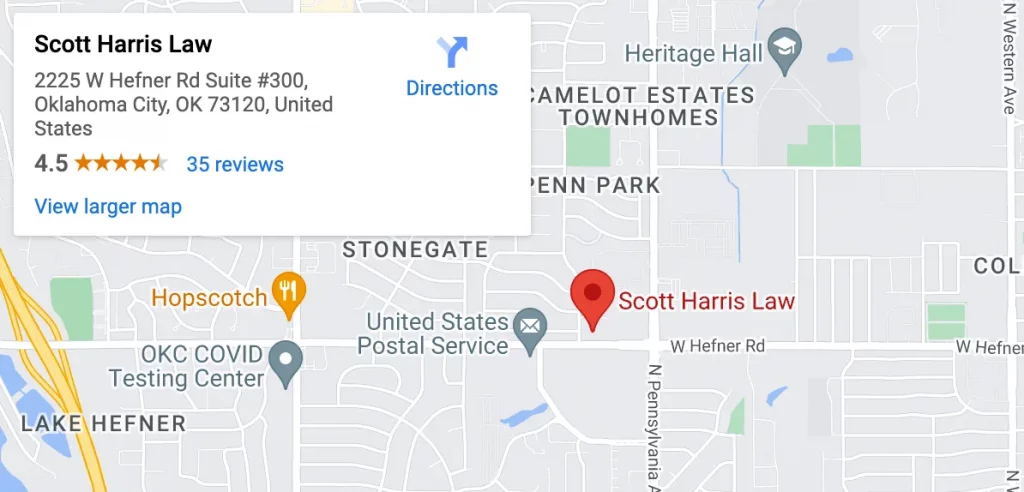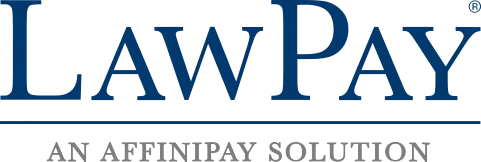Bankruptcy Attorney in Oklahoma City, Oklahoma
Filing Bankruptcy is not something people do in order to “get away with.” Instead, it is a legitimate legal process designed to assist members of our society who are just trying to get by with the curveballs life has dealt them. Second, declaring bankruptcy under Chapter 7 or Chapter 13 does not constitute “cheating” your creditors. Lending institutions were established in order to offer capital that is inevitably subject to default. There wouldn’t be a need for the institutions if there were no risks associated with lending money.
The wisest course of action for you and your loved ones may be to file for bankruptcy if you are having trouble making ends meet. Many people have the opportunity to reestablish their financial stability after filing for bankruptcy. At Scott Harris Law, we understand the harm that persistent, unresolved debt causes to people and families.
Our Oklahoma bankruptcy attorney wants to provide you with a solution. We want to support you in making wise financial decisions for your family and yourself. You might be able to liberate yourself from the chains of debt with the help of our Oklahoma City bankruptcy attorney. Call us right away!
Why do Chapter 13 exemptions in bankruptcy necessary?
You consent to repay all or a percentage of your debts over time if you file for bankruptcy under Chapter 13. You receive your property back in exchange. You put out (and the court must accept) a repayment plan through bankruptcy. Most plans have a three- to five-year lifespan. You pay a predetermined monthly payment to the bankruptcy trustee assigned to your case each month during the repayment period. The trustee then disperses the money to your creditors.
Of course, most consumers are interested in learning what their monthly payment will be. Remember that developing a repayment plan that complies with all regulations is difficult; in fact, bankruptcy attorneys employ software to construct them.
The general application of exemptions is as follows. First, it’s crucial to realize that in a Chapter 13 case, creditors must receive the same amount of money—or more—than they would in a Chapter 7 case. Therefore, in a Chapter 13 case, creditors should at least receive the same amount as they would have in a Chapter 7 case if the Chapter 7 trustee had been permitted to sell the property for the benefit of creditors.
So how do you determine how much should go to creditors? In reality, it’s quite simple. It represents the cost of the debtor’s nonexempt assets. If a debtor files for Chapter 7 bankruptcy, they must pay to keep the property that would have otherwise been forfeited.
Get in touch with our Oklahoma Bankruptcy lawyer to discuss further information regarding this subject.
Chapter 13 Bankruptcy
 Most people file for Chapter 13 bankruptcy because they earn too much money to qualify under the Chapter 7 means test, they don’t want to lose their home or car after falling behind on their payments, or they want to avoid wage garnishments and other forms of debt harassment from creditors while paying back support arrears or recent tax debt over five years.
Most people file for Chapter 13 bankruptcy because they earn too much money to qualify under the Chapter 7 means test, they don’t want to lose their home or car after falling behind on their payments, or they want to avoid wage garnishments and other forms of debt harassment from creditors while paying back support arrears or recent tax debt over five years.
Other advantages not available under Chapter 7 include “lien stripping,” which eliminates junior mortgages on real estate, and “cramdowns,” which lower monthly payments on auto loans.
Oklahoma Bankruptcy Exemptions
Both formal and informal property exemptions exist in the Sooner State. A bankruptcy attorney can make the most of these exemptions and protect your possessions even more.
Official Exemptions
You are eligible for the state’s significant property exemptions if you have resided in Oklahoma for at least two years prior to Bankruptcy filing.
- Homestead exemption: The homestead exemption is frequently capped based on value. Oklahoma simply has one restriction: acreage. Whether your home sits on less than an acre in the city or 160 acres in the country, it is entirely protected.
- Exemption for motor vehicles: Owners may safeguard up to $7,500 in vehicle equity. The trustee can’t touch your equity if you have less of it. Most owners have essentially no equity in new cars because these debts are amortized (interest is paid first). The equity proportion is mostly meaningless for used autos because they often have little financial value.
- Pension plans: Earned IRAs, 401(k)s, and other retirement accounts are totally excluded, regardless of how much money they include. Teachers’ retirement plans and other defined benefit plans are totally exempt as well.
- Public benefits: Social Security, VA disability, and other government programs are substantially reliant on the contributions of many people. Technically, these benefits are shielded from bankruptcy. An experienced attorney can help you effectively protect this money. Benefits from life insurance are also excluded.
- Personal property: Exempt items include home pets, animals, clothing, technology, furniture, jewelry, and other items. In several categories, there is a dollar restriction. However, the majority of personal belongings are not worth much financially.
- Wages currently earned: Debtors are permitted to retain up to 75% of their wages from the three months prior to filing. Judges frequently make exceptions for hardships, allowing debtors to keep even more of their money.
Federal exemptions may be preferred by debtors in some states above state exemptions. Oklahoma isn’t one of these states.
Unofficial Exemptions
The non exempt property is owned by the bankruptcy trustee. It is now included in the bankruptcy estate. Therefore, the trustee must first submit a motion for turnover in order to seize nonexempt property. An attorney has an opportunity to halt liquidation with the help of this motion.
Money in a savings account, is frequently the target of trustees for confiscation. The mootness doctrine occasionally applies if the funds are gone when the trustee files a motion, which they frequently are. However, keep in mind that significant withdrawals from savings and checking accounts right before declaring bankruptcy may be considered suspiciously. When thinking about bankruptcy, consult your attorney before making any significant transfers or acquisitions.
Contact Scott Harris Law to learn more on how to protect your property using exemptions in Chapter 13 Bankruptcy, as well as Bankruptcy protection. Schedule an appointment with our law office today!
How to Determine a Chapter 13 Repayment Plan?
In a Chapter 13 bankruptcy, you offer a plan for repaying all or a portion of your obligations by regular payments to a bankruptcy trustee. There are a lot of intricate regulations that affect a repayment plan. Still, generally speaking, the amount you will pay will be based on your:
- income
- monthly costs of living
- the quantity and kind of the debt you owe, and
- the assets you possess.
Steps in determining Chapter 13 Repayment Plan
Step 1: By subtracting permissible expenses from your monthly revenue, the first step is to calculate your disposable income. Then, multiply the amount of your monthly payments by the quantity of months in your repayment schedule.
Step 2: Finding the worth of your nonexempt assets. Using the state’s bankruptcy exemptions, each state permits filers to preserve a certain amount of property. The assets that a bankruptcy exemption cannot protect are known as nonexempt assets. Your repayment plan in Chapter 13 must include paying your creditors the worth of your nonexempt assets.
Step 3: Choosing which debts you must completely repay as part of a Chapter 13 plan is the third step. These debts include past-due car, if you intend to maintain the vehicle, and mortgage payments, current income tax debt, and support arrears.
You’ll have three numbers in front of you once everything is finished. You will be obliged to pay the larger of your disposable income or the worth of your nonexempt assets plus the amount of the debts that must be paid in full throughout the period of your plan. You will meet what is referred to as the “best-effort” rule in Chapter 13 bankruptcy by adhering to this method.
Remember that figuring out a payback schedule is challenging. This condensed explanation should only be used to enhance understanding rather than as an instructional manual.
In an Oklahoma bankruptcy, what happens to the property you are unable to exempt?
As was already mentioned, Chapter 13 bankruptcy allows you to keep all of your possessions; but this luxury has a monetary cost. Any assets not covered by an exemption under your Chapter 13 repayment plan will be valued and paid to your creditors.
Consider the scenario where you own a $3,000 car that you own outright and a $5,000 vehicle exemption in Oklahoma. You wouldn’t have to make additional payments to your creditors under Chapter 13’s repayment arrangement. However, if the car were valued at $15,000, you would have to use your plan to pay your creditors at least $10,000 (less sales expenses).
Still confused? Contact our Bankruptcy attorney in Oklahoma right away!
Regulations for Oklahoma Bankruptcy Exemption Timing
When declaring bankruptcy, it may be tempting to relocate to a state with much broader bankruptcy exemptions. But it probably wouldn’t accomplish anything. Filers must have lived in the state for at least two years before filing; if not, they must use the exemptions from their prior state. This requirement is in place to avoid system abuse. This is how it goes:
- You are eligible to use the state’s exemptions if you have lived there for at least two years and consider it to be your “domicile” (or the federal exemptions if allowed).
- The requirements become more convoluted if your residence has not been within the same county for two years, so be ready.
When to Use the Bankruptcy Exemptions in Oklahoma?
After residing in Oklahoma for more than 180 days, you are eligible to petition for bankruptcy (or the greater portion of 180 days before filing). You must first reside in Oklahoma for 730 days before using any Oklahoma exemptions, though. If not, you would apply for the exemptions from the prior state.
Take the instance where you didn’t reside in any one state for the two years prior to declaring bankruptcy. If so, you would apply for the exemptions from the state you resided in for the majority of the 180 days leading up to the two-year period immediately before your filing.
Make an appointment with our knowledgeable Oklahoma bankruptcy attorney to learn more about declaring bankruptcy after moving to a new state and who is eligible to do so and seek legal advice regarding Bankruptcy.
Call our Oklahoma Bankruptcy Lawyer Now!
It might be challenging to determine whether a piece of property is exempt and to develop a workable Chapter 13 repayment plan. It is also hard to file bankruptcy on your own due to the lengthy and challenging nature of the bankruptcy code and its process. Well, it’s time to contact our dependable Oklahoma Bankruptcy attorney at Scott Harris Law for your first free consultation. We will meet with you to go over your issue and any potential choices.
Additionally, if you have other legal concerns about Bankruptcy cases or other legal topics, including Debt Negotiation, Student Loans Debt, and Foreclosure Defense, consider also giving us your trust to help you out of your problems.




